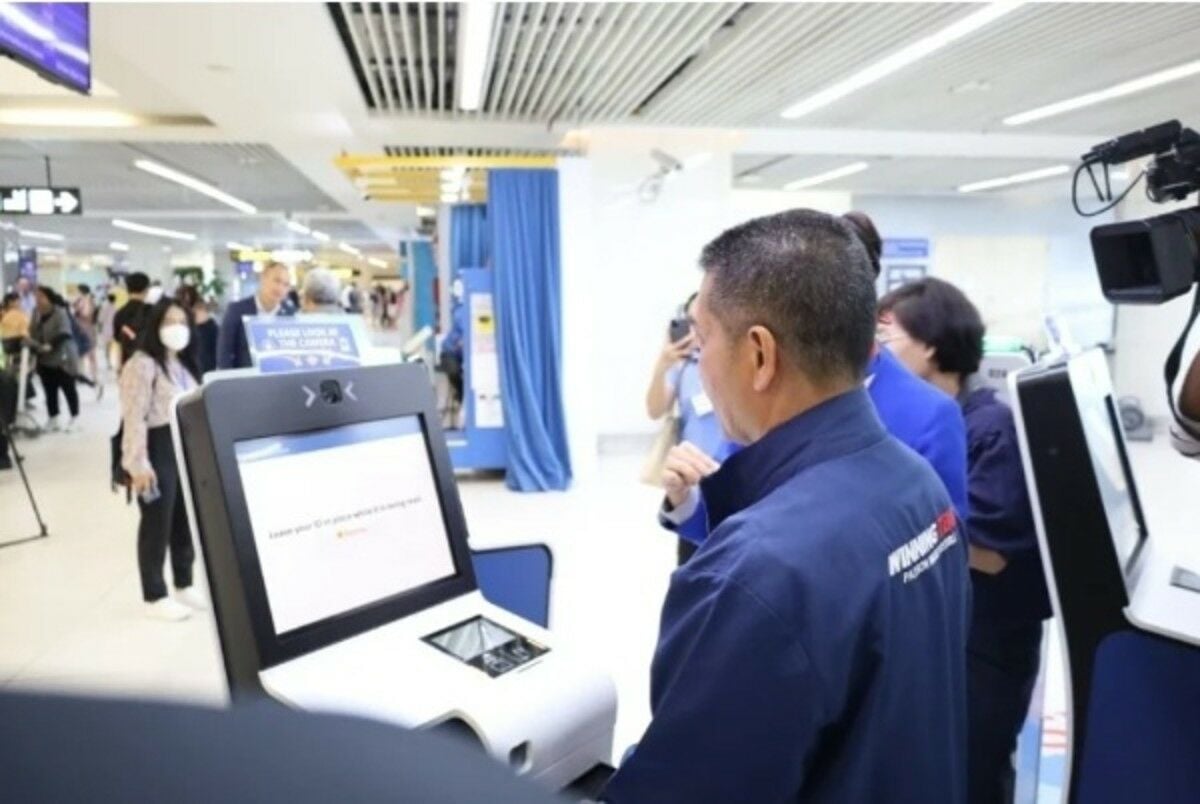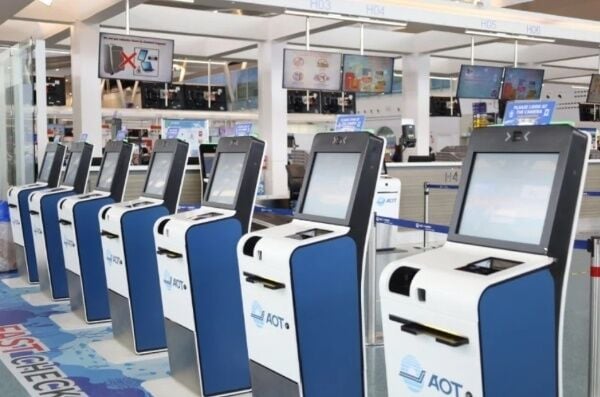Phuket Airport boosts efficiency with facial recognition technology

Phuket Governor Sophon Suwannarat made an appearance at Phuket International Airport yesterday, November 8, marking a significant advancement in passenger processing through the launch of facial recognition technology. This initiative aims to streamline procedures and cut down on wait times for travellers.
Phuket International Airport introduced this advanced system for domestic flights last week, with plans to extend it to international passengers from December 1. Monchai Tanode, the airport’s general manager, confirmed the rollout of this new Automated Biometric Identification System, which is part of a broader implementation by Airports of Thailand (AoT) across all six of its operated airports.
In addition to Phuket, AoT manages the Suvarnabhumi, Don Mueang, Chiang Mai, Mae Fah Luang Chiang Rai, and Hat Yai airports. The new system employs sophisticated facial recognition to verify passenger identities, facilitating a more seamless journey at various checkpoints.
Travellers have two options to register for this system. They can either inform airline staff at the check-in counter, where a ticket scanner will be used to capture their data, or they can utilise the airport’s automated self-check-in machines. The collected facial data is securely stored as a “Token” and is used solely for the duration of the current trip, said Monchai.
“Passengers using this system can skip the traditional ID check at several key points, including automated baggage loading, identification verification, and boarding gates. This eliminates the need to present an ID card, passport, or boarding pass, speeding up the entire airport experience.”
For those opting for self-check-in, a Smart Card ID or passport is necessary, whereas passengers registering at airline counters can use any government-issued ID that the Civil Aviation Authority of Thailand (CAAT) recognises. Additionally, for minors, the Personal Data Protection Act (PDPA) in Thailand mandates parental consent for children under the age of 10, while those over 10 can register independently, Monchai added.
“AoT has pledged to continue enhancing its facilities with modern, efficient technologies to provide a convenient, high-quality travel experience for all passengers.”
This technological upgrade is part of AoT’s commitment to improve airport operations and passenger convenience by integrating cutting-edge solutions. As the rollout progresses, international travellers can anticipate a faster and more efficient experience at Phuket International Airport starting next month, reported Phuket News.

What Other Media Are Saying
- Airport Technology highlights Airports of Thailand’s implementation of an automated biometric identification system across six airports, aiming to significantly enhance passenger experience through faster, convenient, and secure processes using facial recognition technology. (read more)
- Bangkok Post reports that six Thai airports will implement facial recognition technology for smoother boarding processes, aiming to enhance passenger experience by minimising the need for physical identification during travel. (read more)
Frequently Asked Questions
Here are some common questions asked about this news.
How might facial recognition technology transform the future of airport security?
It could enhance security by swiftly verifying identities, reducing human error, and speeding up passenger flow.
Why is parental consent necessary for minors under ten in this new system?
The Personal Data Protection Act in Thailand requires it to protect children’s privacy and data.
What if biometric systems like this become standard worldwide?
Global adoption could lead to universally seamless travel, but also raises privacy and data security concerns.
How does the use of biometric “Tokens” safeguard passenger data?
Tokens are temporary and used only for the trip duration, minimising long-term data exposure.
What potential challenges could arise from implementing facial recognition in airports?
Challenges include privacy issues, potential data breaches, and ensuring technology accuracy across diverse populations.
Latest Thailand News
Follow The Thaiger on Google News:


























